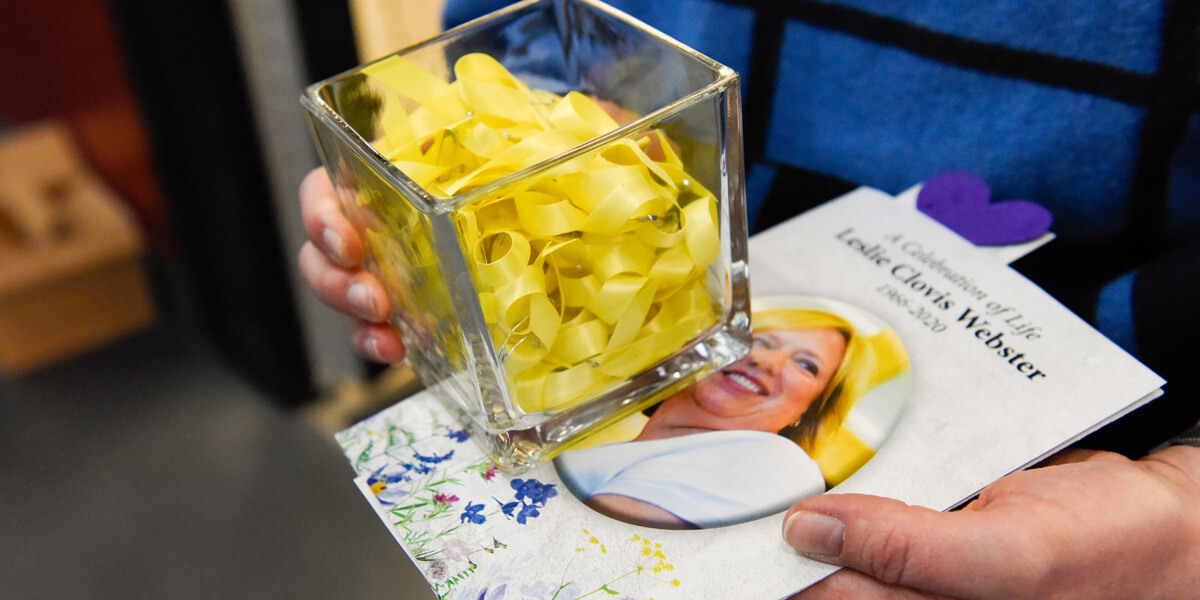The response of the Colorado Academy community over the past several weeks after the loss of a beloved teacher has been humbling, uplifting, and a reminder about both the impact of grief and the importance of not grieving alone.
All of the emails, cards, letters, flowers, and gifts—both to the school and the Webster family—are evidence of a community that knows and understands that each of us works to find meaning in the life of the one who is gone, but also to understand how our lives change with the loss of a teacher, co-worker, spouse, mother, and friend.
Dr. Phyllis Silverman wrote an article about grieving several years ago that said, “Grief is not an illness, and we do not recover from it, that is, there is no cure. It is a natural life cycle event that all of us will experience when someone we are close to, care about, or simply know, dies. We learn to accommodate to this loss, to accommodate to our feelings, and to cope with the many changes a death can bring to our lives.”
We know that mourning and grieving are different for each person and for each age group, and each of us travels our own journey in dealing with those feelings and with the changes that the loss brings to our own lives. Silverman talks about how each of us works to reorganize our lives in the wake of a loss, and how that is also part of the bereavement process. Some people are quiet about what they are experiencing, others want to talk.
Including children
Most especially, we know that children must be part of this process. Sliverman says we all must be helpers. We must know how to listen, to not recite platitudes, or be fearful of other people’s pain. We need to be able to ask about the person who died and to learn something about what was lost. And children must know who will care for them after the loss of someone so dear.
As I shared in my remarks at last Sunday’s Celebration of Life for Leslie Webster, Leslie would expect from each of us that our job of teaching must continue. Our task as a family and community must be tackled with rededication and increased resolve.
And we must embrace one another as we walk together through this transition. CA alumnus Chuck Howe from the Class of 1961 wrote to me and said of this time that, “Sometimes we initiate transitions, especially when we are young and finding our way. But as years pass, transitions increasingly occur around us…and through it all, friends (and community) remain the magic glue, helping us understand and cope with change. May the days and weeks ahead bring you the peace, love, and courage needed to deal with this and all transitions, whatever they may be.”
We must remember Leslie at the same time that we put one foot in front of another. As a community, we must continue to help and love her family, her co-workers, and her students, and keep close to our hearts the love and joy Leslie shared with all of us.
